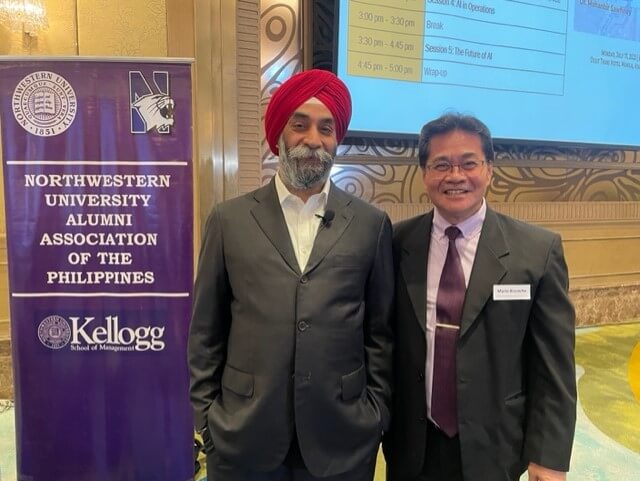Last July 17, we had the privilege to attend an intensive whole day conference with the world-renowned Dr. Mohanbir Sawhney, PhD of the Northwestern’s Kellogg School of Management. It was an interesting and fascinating learning journey that began with him sharing his experience by giving his inputs/thoughts on AI, which churned out a complete microlearning module, complete with PowerPoint slides and videos, in a span of only ten minutes. This was definitely a demonstration of the power of AI.
Artificial Intelligence or AI represents the culmination of human ingenuity, melding cutting-edge research with innovative algorithms to enable machines to perform tasks that previously required human intelligence. At its core, AI aims to replicate human cognitive abilities, such as learning, reasoning, problem-solving, and decision-making. By leveraging vast amounts of data and advanced computational power, AI systems can analyze patterns, draw insights, and make predictions, ushering in a new era of automation, efficiency, and enhanced experiences.

From virtual assistants like Siri and Alexa that respond to voice commands, to self-driving cars navigating busy streets, and even medical applications that aid in diagnosing diseases, AI’s impact spans across industries and continues to shape the way we live, work, and interact with technology.
Generative AI is a subset of artificial intelligence focused on developing models that can create new content or data that resembles samples from a given dataset. These models are capable of generating original content, such as images, text, music, and more, by learning the underlying patterns and structures present in the training data. Generative AI has seen significant advancements in recent years, primarily due to the development of deep learning techniques and architectures.
Applications of generative AI include:
- Image Generation: Generative models can create new images that resemble those from the training data. These models find applications in art, design, and generating realistic images for video games.
- Text Generation: Generative models can be used to generate coherent and contextually relevant text. Applications include language translation, chatbots, and creative writing.
- Music Composition: AI-generated music has been used in video games, background music for media, and even assisting composers in their creative process.
- Data Augmentation: Generative models can help augment datasets, making them more diverse and improving the performance of other AI models.
- Drug Discovery: Generative models can be employed in drug discovery by generating new chemical structures that could be potential candidates for new drugs.

Despite the exciting possibilities, Generative AI also presents challenges, such as the potential for biased outputs, the risk of producing misleading or harmful content, and the ethical implications of using AI to create content that might deceive or manipulate people. Researchers and developers are continuously working to address these concerns and leverage generative AI responsibly and ethically.
It is essential to use Generative AI responsibly, considering ethical implications and potential biases. Proper validation and quality control are necessary when incorporating AI-generated content into real-world applications. Moreover, ongoing research and advancements in the field can further expand the potential uses and benefits of harnessing Generative AI.





